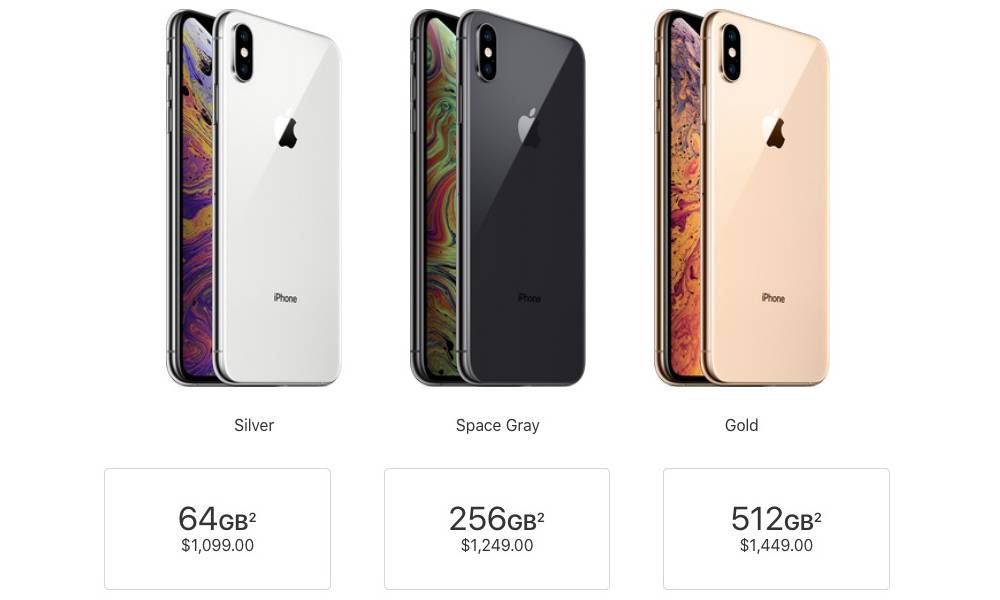Apple Is Reaping Huge Profits from iPhone XS Storage Options
 Credit: Apple
Credit: Apple
Toggle Dark Mode
Apple’s clever pricing strategy for the iPhone XS and XS Max has been yielding sizeable returns. The new 512GB storage option for Apple’s newest flagship smartphones is the highest that the company has ever offered, up from last year’s maximum of 256GB for the iPhone X. Bloomberg has calculated that the new storage tier will allow Apple to make an additional $241 per iPhone compared to the 64GB option, bringing the total price tag up to an eye-watering $1,349 for the iPhone XS and $1,449 for the iPhone XS Max.
“Storage is one of their levers to create more revenue and is absolutely the most profitable iPhone feature,” IHS Markit researcher Wayne Lam said. There is no additional work for Apple to perform to increase the capacity, Lam reasons, because it is simply a chip swap, “whereas when you increase the screen size, you have to completely re-engineer the phone.”
The profit margins are great considering the fact that the price for storage components have fallen to half of what they cost last year, according to InSpectrum Tech. Analysts believe that Apple pays its NAND chip suppliers approximately $0.25 per gigabyte, but it has opted not to pass these savings down to consumers. It charges customers around $0.78 per gigabyte. In total, Apple has to pay around $109 to upgrade a 64GB model to 512GB. By comparison, customers are charged $350 for the same upgrade.
As the above estimates suggest, Apple has likely managed to shave costs significantly on storage, which is the third most expensive component in the iPhone XS according to TechInsights. The most expensive component is the display, which is believed to cost Apple $80.50 per device.
However, these estimates should be taken with a grain of salt. They rely on figures calculated by analysts who do not have access to Apple’s actual contracts with suppliers, which will never be disclosed to the public. The numbers also do not factor in supply chain, manufacturing, and assembly issues, which also have a bearing on the final price of iPhones. In 2015, Apple CEO Tim Cook went so far as to say that “I’ve never seen [a cost breakdown] that is anywhere close to being accurate”.
Instead, Cook justifies iPhone prices based on the innovative features and value the devices deliver to customers. “If you provide a lot of innovation and a lot of value, there is a segment of people who are willing to pay for it,” he said in a recent interview with Nikkei.






